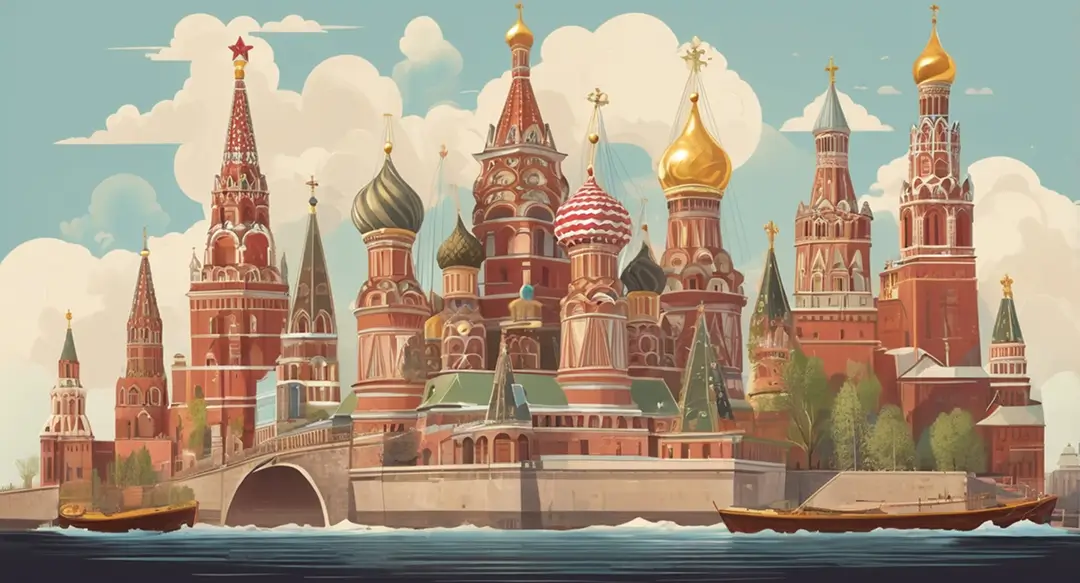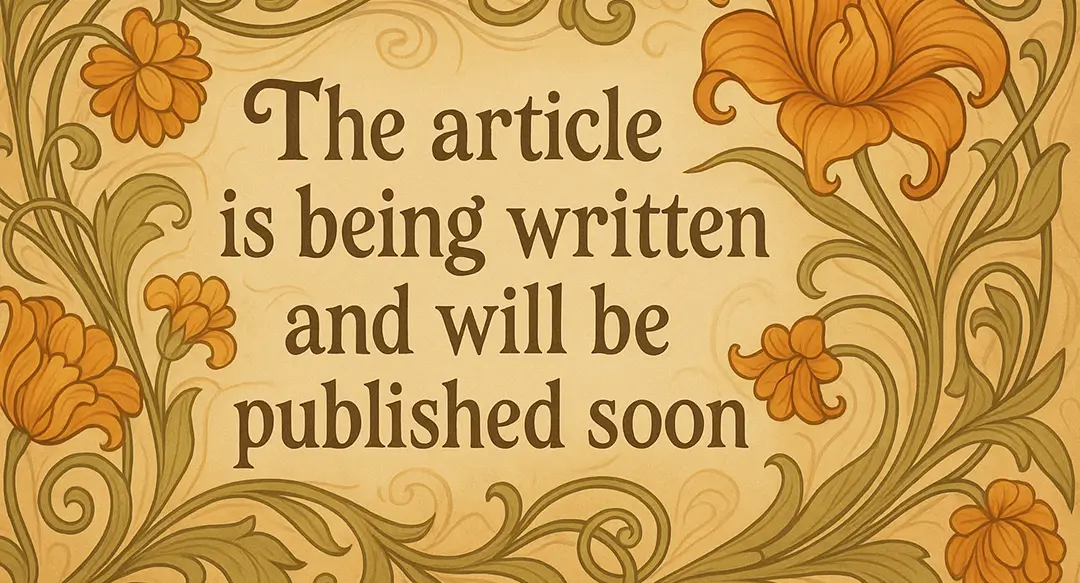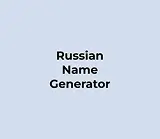History of Russian Names
Russian names have evolved through centuries of historical, religious, cultural, and linguistic influences—from ancient pagan societies to the Orthodox Church, Soviet secularism, and globalization. People worldwide search for russian names for various reasons: choosing a name for their child or pet, selecting authentic names for fictional characters, or exploring Russian culture.
Pre-Christian and Old Slavic Names
Before the adoption of Christianity in the 10th century, East Slavic peoples used a diverse set of pagan names. These names often reflected birth order (e.g., Perva, meaning "first-born"), animals and nature (e.g., Volk meaning "wolf"), or used apotropaic words meant to ward off evil (e.g., Nelyuba, "unloved"). Many of these ancient names ultimately contributed to the formation of surnames.
Historical development of Russian names from pre-Christian times to modern era
Christianization and Orthodox Influence
With the baptism of Kievan Rus' in 988 under Prince Vladimir the Great, Christian (mostly Greek-origin) names entered common use. These names were usually taken from the liturgical calendar of saints (known as "calendar names"), such as Ivan ("John"), Maria, Andrei, Tatiana, and Elizaveta.
Soviet Era & Modern Trends
The October Revolution in 1917 dismantled many religious traditions. Naming became a civil matter, leading to an "anthroponymic boom," with names invented to reflect Communist ideology (e.g., Era, Avangard), and revived archaic Slavic names such as Stanislav and Radomir.
Russian Last Names: From Patronymics to Modern Surnames
Russian last names (familii) reveal fascinating insights into ancestry, geography, and social history. Unlike Western surnames, russian last names follow distinctive grammatical patterns that immediately indicate gender and origin.
Common Russian Last Names: Top 50 with Historical Origins
The most common Russian last names derive from four primary sources, as documented in the 2023 Russian Census:
| Origin Type | Percentage | Male Form | Female Form | Examples |
|---|---|---|---|---|
| Patronymic | 70% | -ov/-ev | -ova/-eva | Ivanov (son of Ivan), Smirnov (from "smirny" - meek) |
| Occupational | 15% | -ov/-ev | -ova/-eva | Kuznetsov (blacksmith), Rybakov (fisherman) |
| Geographical | 10% | -in/-sky | -ina/-skaya | Berezin (birch forest dweller), Gorsky (mountain dweller) |
| Nickname-based | 5% | -ov/-ev | -ova/-eva | Tolstoy (stout), Belyaev (fair-haired) |
Russian Last Names Male vs Female: Grammatical Secrets
The gender distinction in russian last names follows strict morphological rules:
- Male forms end in consonants: Petrov, Volkov, Makarov
- Female forms add -a: Petrova, Volkova, Makarova
"The grammatical gender in russian names reflects Proto-Slavic adjectival declension patterns preserved through centuries" - Dr. Elena Shmeleva, Linguistic Institute
Russian Girl Names: Linguistic Beauty and Cultural Significance
Russian female names are celebrated for their melodic qualities and rich meanings, blending Orthodox traditions with Slavic linguistic heritage.
Pretty Russian Girl Names: Phonetic Perfection
The most pretty Russian girl names share distinctive phonetic features:
| Name | Pronunciation | Meaning | Literary Reference | Examples |
|---|---|---|---|---|
| Sofia | so-FEE-ya | "Wisdom" | Tolstoy's War and Peace | Sofia Vergara (actress), Queen Sofia of Spain |
| Anastasia | a-na-STA-zya | "Resurrection" | Romanov dynasty | Grand Duchess Anastasia Romanov, Anastasia Pavlyuchenkova (tennis player) |
| Polina | po-LEE-na | "Apollo" | Pushkin | Polina Gagarina (singer), Polina Semionova (ballerina) |
| Kira | KEE-ra | "Mistress" | Cyberpunk literature | Kira (German singer), Kira Roessler (musician) |
Russian Boy Names: Historical Power and Modern Trends
From ancient warrior names to contemporary innovations, russian male names reflect a rich tapestry of Slavic heritage and societal evolution.
Strong Russian Male Names: Warrior Legacy
The most strong russian boy names derive from distinct cultural sources:
| Name | Meaning | Historical Bearer | Linguistic Root | Examples |
|---|---|---|---|---|
| Vladimir | "Ruler of peace" | Vladimir the Great | Slavic vlad (rule) + mir (peace) | Vladimir Putin (Russian president), Vladimir Lenin (revolutionary) |
| Dmitry | "Devoted to Demeter" | Dmitry Donskoy | Greek agricultural deity | Dmitry Donskoy (Russian prince), Dmitry Medvedev (Russian prime minister) |
| Yuri | "Farmer" | Yuri Gagarin | Slavic yur (cultivated land) | Yuri Gagarin (first human in space), Yuri Andropov (Soviet leader) |
Russian Middle Names: The Patronymic System Unveiled
Russian middle names (otchestva) are a unique cultural institution that identifies lineage and maintains family connections across generations.
How Patronymics Work: Structural Formulas
The Russian patronymic system follows precise grammatical rules:
- Male patronymics: Father's name + -ovich/-evich
- Vladimir → Vladimirovich
- Dmitry → Dmitrievich
- Female patronymics: Father's name + -ovna/-evna
- Alexander → Alexandrovna
- Igor → Igorevna
Russian Pet Names
Russian names are popular choices for pets around the world. Here are some popular categories:
Russian Dog Names
- Common & Male Russian Dog Names: Sasha, Ivan, Boris, Dmitri, Misha
- Popular Female Dog Names: Olga, Maria, Natalya, Anastasia, Kira
- Unique & Cool Russian Dog Names: Ruslan, Zlata, Aurora, Aslan, Zhivago
Russian Cat Names
- Cultural & Meaningful: Belka ("squirrel"), Calina ("moon"), Darya ("sea")
- Classic & Playful Cats: Alyonushka, Anastasia, Anya, Dasha
- Animal‑inspired Names: Akula (shark), Lev (lion), Medved (bear)
Generate Authentic Russian Names
Create perfect Russian names with our scientifically-designed generator
Try Our Name GeneratorFree • Instant • No Registration Required
Frequently Asked Questions
Is Sasha a Russian name?
Sasha is a unisex diminutive of Alexander/Alexandra. First documented in 14th-century Novgorod birch bark manuscripts.
Why do Russian women names end with -a?
This reflects Proto-Slavic declension patterns:
- Feminine gender: -a ending (Maria)
- Masculine gender: zero ending (Ivan)
Is Ivan a Russian name?
Yes. Ivan is a classic Russian name deriving from Slavic adaptation of the Greek form of Hebrew יוֹחָנָן ("God is gracious").
How do I translate my name into Russian?
Use a Russian name translator to convert your name into Cyrillic and find an equivalent Russian form.







